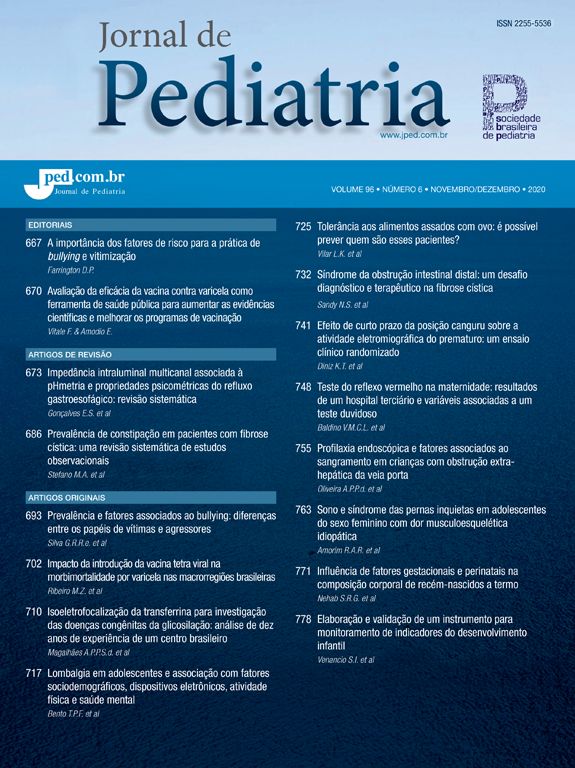The main objective of this study was to explore the relationship between perinatal care and neonatal mortality as a component of the infant mortality. Indicators were selected to analyze some aspects of the quality of perinatal care attendance offered to pregnant women and their newborns. Specific attention was given to the avoidable perinatal deaths in the city of Fortaleza, Ceará.
MethodsPopulation-based, prospective study on incidence. The study was carried out collecting data of seventeen maternity units and two referral pediatric hospitals of the public health system in Fortaleza, the capital of the State of Ceará. All births, alive or dead, weighting 500 grams or more, along the whole year of 1995, were included in the study. The perinatal deaths' causes were studied according to the modified Wigglesworth classification (1989).
ResultsAlong the whole study period, 40,712 children were born and 1,337 perinatal deaths occurred. Among them 730 occurred during the fetal life and 607 during the first week of life. In spite of the low incidence of low-weight newborns (7.4%), the coefficients of fetal mortality were high (17.9-), as well as the perinatal mortality (32.8-) and neonatal mortality (15.1-). The number of avoidable perinatal deaths related to adequate perinatal care was estimated to be one third of the total deaths studied (458/1,323).
ConclusionsThe results indicate that the perinatal assistance in the city of Fortaleza is of low quality, with problems related to the health system organization and to the low quality of the care offered to women during pregnancy, at delivery and to the newborns in the delivery room as well as in neonatal wards.
O objetivo deste estudo foi contribuir para o entendimento de algumas questões de saúde perinatal e do componente neonatal da mortalidade infantil, através da elaboração dos indicadores para a área perinatal e a do estudo de aspectos da qualidade da atenção à saúde oferecida à mulher grávida e seu filho recém-nascido. Em particular, estimou-se a proporção de mortes perinatais evitáveis no município de Fortaleza, Ceará.
MetodologiaEstudo prospectivo de incidência com base populacional. Realizado a partir da coleta de dados em 17 maternidades públicas ou conveniadas e dois hospitais pediátricos de referência do sistema único de saúde do município de Fortaleza. Foram estudadas todas as crianças nascidas vivas ou mortas com peso igual ou superior a 500 gramas no ano de 1995. As causas de mortes perinatais foram estudadas segundo a classificação de Wiggles-worth modificada (1989).
ResultadosNasceram no período estudado 40.712 crianças e ocorreram 1.337 mortes perinatais - 730 no período fetal e 607 na primeira semana de vida. Apesar da baixa prevalência de recém-nascidos com baixo peso (7,4%), foram elevados os coeficientes de mortalidade fetal (17,9-), perinatal (32,8-) e neonatal precoce (15,1-). O número de óbitos perinatais redutíveis por adequada atenção perinatal foi estimado em pelo menos um terço do total dos óbitos estudados (458/1.323).
ConclusõesOs resultados encontrados evidenciam uma situação de saúde perinatal bastante precária, com possíveis problemas na organização do sistema e na qualidade da atenção à saúde prestada às gestantes durante o pré-natal e o parto e no atendimento aos recém-nascidos em sala de parto e bercário.








